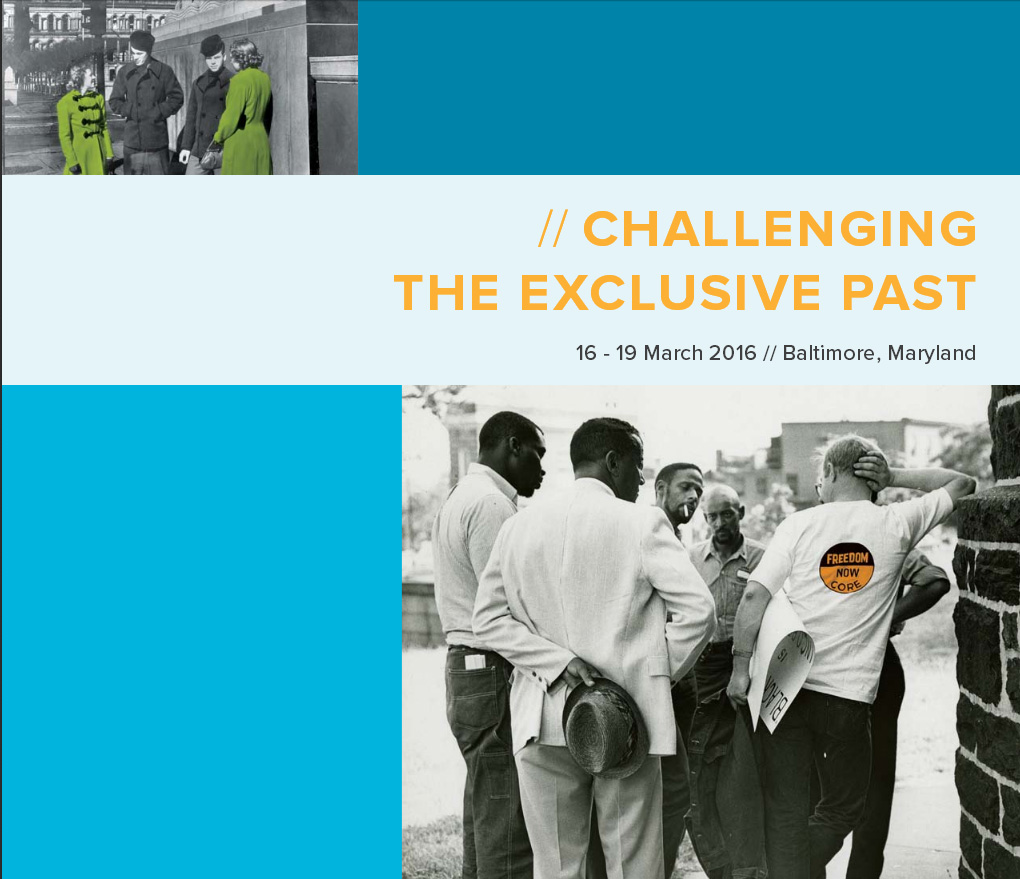This past weekend I attended the National Council on Public History’s annual meeting in Baltimore, Maryland. The conference revolved around the theme of “Challenging the Exclusive Past”. This theme starts to scratch the surface on the multitude of complexities in doing public history work. Attending the NCPH conference allowed me to draw broad comparisons among a variety of public history institutions throughout the country. Following in line with the conference theme, the main sessions highlighted the need to fill in the gaps in the historic record and tell the stories that have been ignored in the past.
Working at the Women and Leadership Archives (WLA), I understand the need to expand the historical narrative to be more inclusive. The WLA first and foremost preserves documents related to women, a group often ignored in the historical record. While the main function of many archives is not necessarily to display or exhibit the collections, the WLA does host events, put on presentations, write weekly blog posts, and create tabletop displays and digital exhibits. These are ways of highlighting not only the WLA’s collections, but women’s history in general. The collections contained within the archives are also open for researchers and the public and they too may utilize the documents to fill in gaps and contribute to the study of women in history.
After attending the NCPH conference it became very clear to me how difficult it can be for some public history institutions to include materials, stories, and exhibits from marginalized groups. Many public history professionals spoke not just of the people, stories, and histories that have been left out of the historical record, but of the institutions in place to prevent them from telling those histories. The stories ranged from people working in small local museums to the National Park Service and other federal organizations. There were many current and former federal employees and their comments were not always very positive about their past and present work. They brought up limitations they have at current historical sites because of controversial topics and they also mentioned that they struggle with people in positions of power to recognize and promote new sites that would fill in the gaps in the historical record.
While hearing about these challenges and struggles can be disheartening, I choose to take a more positive stance on the matter by applauding all those working to change current attitudes. Many of these people have been working for years to have their work recognized and have yet to succeed, but what they are doing is making a difference. My time spent at NCPH was very valuable to me in terms of understanding how I might proceed in the future with public history work. I am also thankful for institutions like the WLA that are dedicated to preserving the history of marginalized groups. These institutions are necessary because they open their doors to people who will be part of researching and writing the histories that have yet to be told.
Megan is a Graduate Assistant at the WLA and is in the first year of her M.A in Public History at Loyola University Chicago. She is an avid movie-goer and enjoys arts and crafts, live sporting events, and small Midwestern towns.
Loyola University Chicago’s Women and Leadership Archives Blog is designed to provide a positive environment for the Loyola community to discuss important issues and ideas. Differences of opinion are encouraged. We invite comments in response to posts and ask that you write in a civil and respectful manner. All comments will be screened for tone and content and must include the first and last name of the author and a valid email address. The appearance of comments on the blog does not imply the University’s endorsement or acceptance of views expressed.

